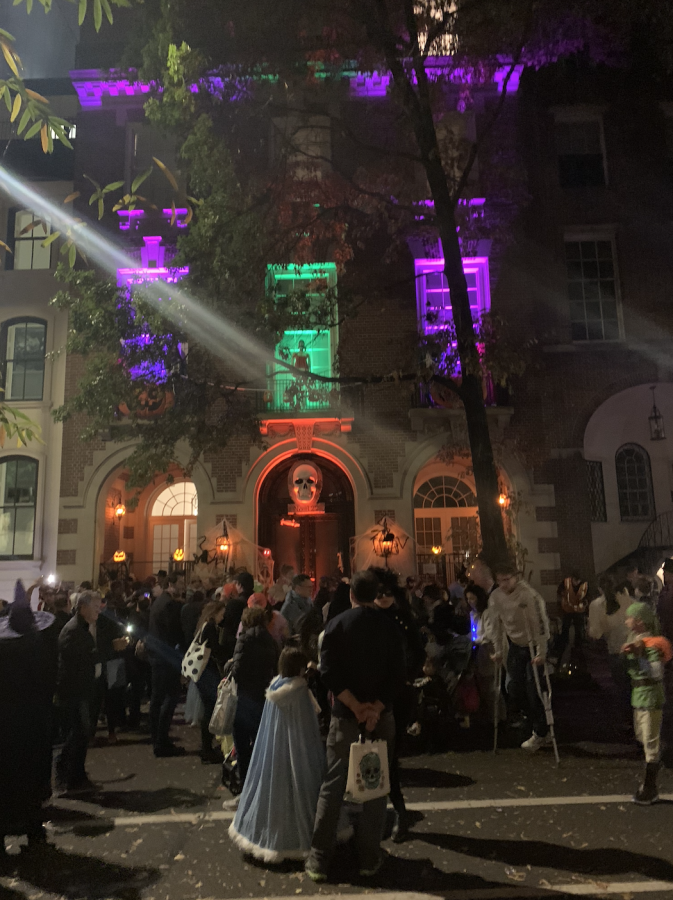Halloween, No, Thanksgiving, Yes: Ramaz Reacts to a Spooky Tradition
On October 31st, East 78th Street filled up with revelers in costume, trick-or-treating at spookily decorated townhouses. Down the block at Ramaz, the scene was decidedly less festive.
Every year, the Ramaz administration sends an email to the school community reminding them that Ramaz discourages any celebration of Halloween. The “celebration of Halloween runs counter to halakha, which forbids adopting rituals which are pagan in origin,” Mr. Jonathan Cannon and Rabbi Josh Lookstein said in the email to the community. “Throughout the ages, Jews have kept their identity, even while living as minorities among other cultures, by maintaining a clear distinction between Jewish and non-Jewish spiritual practices.”
Rabbi Josh Lookstein explained that Halloween has clear religious origins—first Pagan, then Catholic—that revolve around elements inconsistent with Jewish values. “The original rituals—mainly the costumes and tricking—are still in place today,” he said. Associate Principal Rabbi Kenny Schiowitz echoed this sentiment, explaining that the observance of Halloween in our society is often less than inspiring. “The demands for candy and the celebration of death do not resonate with our general values and mindset,” he said.
Among the students, views around Halloween are more varied, with some students participating in Halloween and others abstaining. “I have never celebrated Halloween before, and I don’t feel connected to the holiday,” Adrian Rosenfeld ’24, said. “I also don’t feel like I am missing out because of the Jewish holidays that are more meaningful to me.” Other students said they felt that Halloween is a secular holiday observed by everyone in the country and chose to celebrate after school. “It’s fun to dress up and hang out with my friends and eat candy,” said one student who asked to remain anonymous. Another said: “I celebrate Halloween because of the energy it brings into the city and obviously the candy. This holiday may have started as a Christian holiday, but now it’s become a holiday for all Americans to celebrate.”
Still, administrators insisted there is a clear difference between Halloween and other American holidays like Thanksgiving, which is based on values they said are more consonant with Jewish values. “The value of gratitude is fundamental in our value system, and [Thanksgiving] is a powerful opportunity to express gratitude to the extraordinary and unique gift of freedom that we enjoy in the United States,” Rabbi Schiowitz said.
Rabbi Josh Lookstein referred to Ramaz’s founder, Rabbi Joseph Lookstein, in emphasizing that while participating in American society may be important, abiding by halakha remains paramount. “My grandfather definitely implemented many changes, but they were all within the boundaries of halakha. Halloween was and is outside of those boundaries,” he said.



